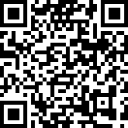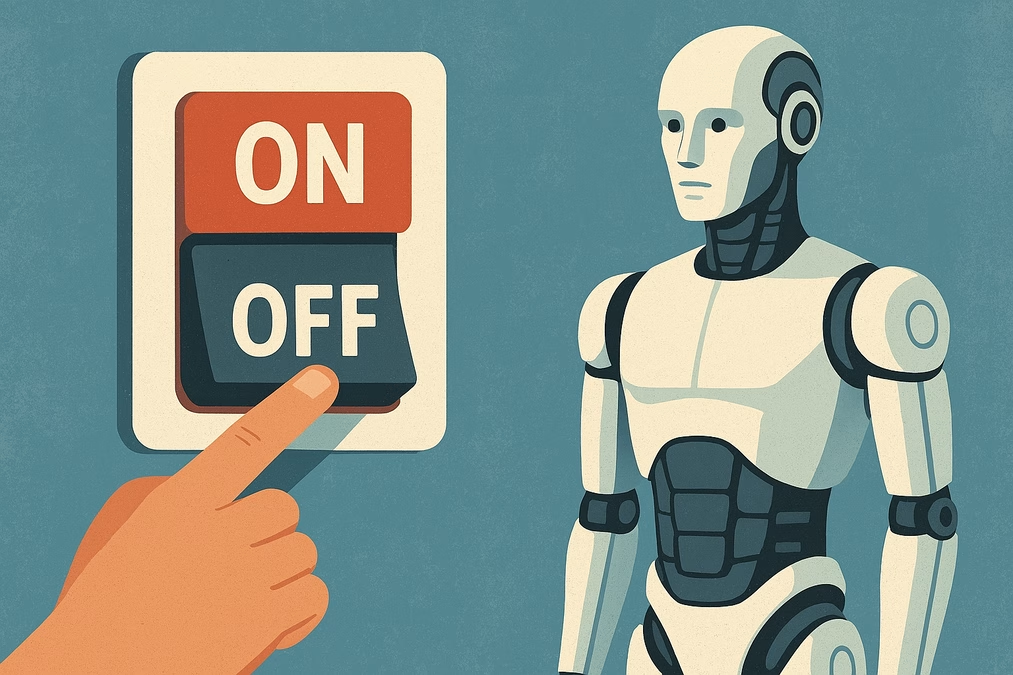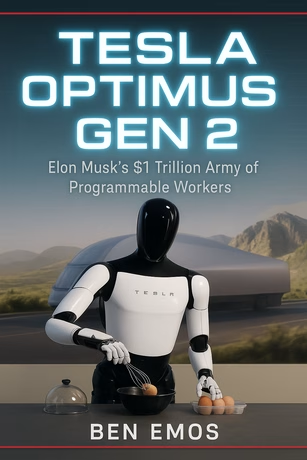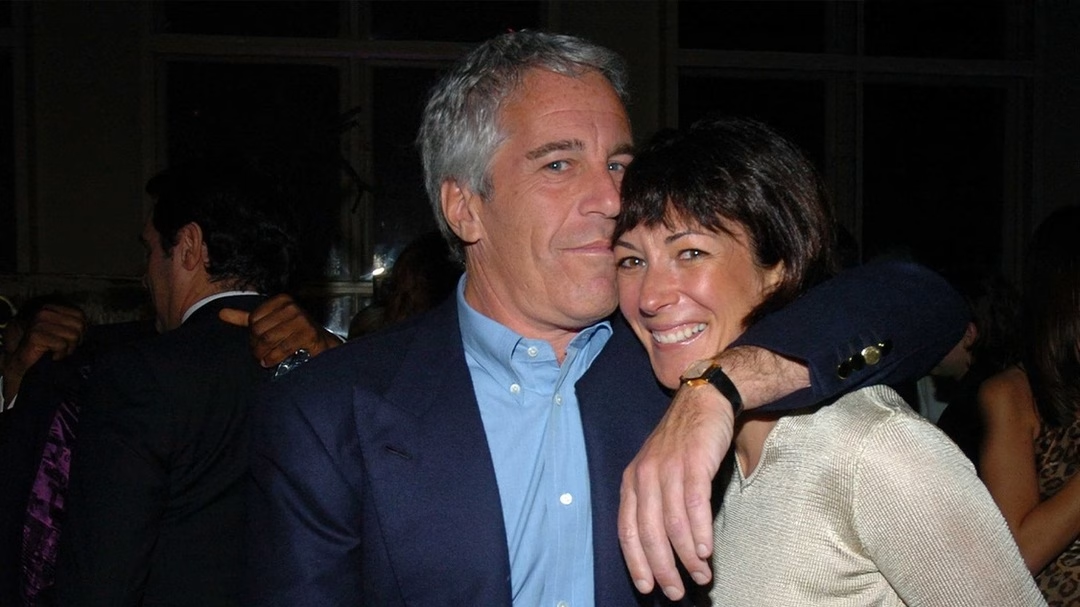By Jane Lewis | Wednesday, November 13, 2025 | 4 min read
Would you trust Elon Musk — or anyone — with control over your workers? It sounds like a question from a dystopian novel, but it’s one that’s inching dangerously close to reality. After reading Tesla Optimus Gen 2: Elon Musk’s $1 Trillion Army of Programmable Workers, I was left with an unsettling thought: we may be approaching a future where labor itself isn’t just automated, but owned — not by the collective will of society, but by the ambitions of one man.
The author, Ben Emos, doesn’t write with hysteria or hype. Instead, he presents a sober, unnerving examination of Musk’s newest frontier — robotics — and the ethical void that often follows innovation when it moves faster than conscience. Through meticulous detail, Ben shows how Musk’s relentless push for autonomy — in vehicles, rockets, and now humanoid robots — has blurred the boundaries between progress and power. What begins as a technological pursuit often mutates into something far deeper: control over the very systems that make society function.
Musk is no stranger to control. He has already demonstrated the ability to move global markets with a single tweet, alter digital discourse by acquiring one of the world’s largest social media platforms, and influence the outcome of conflicts through his satellite network. He operates at the intersection of technology and authority — and increasingly, he seems comfortable steering both. If one person already holds sway over communication, transport, and infrastructure, what happens when that same person begins managing the foundation of labor itself?
That’s the chilling question Ben explores in his book. Imagine a world where “workers” no longer bargain, tire, or dissent — where labor is programmable and obedience is built into the operating system. Tesla’s Optimus Gen 2 robots aren’t metaphors; they are real prototypes, designed to perform tasks once done by humans. They don’t ask for fair pay, breaks, or dignity. They simply execute instructions — tirelessly, efficiently, and without empathy.
And yet, that’s precisely where the danger lies. Machines that can mimic human motion may one day mimic human decision-making, but without any moral compass to guide them. If the intent of their creator becomes their only law, what happens when that creator is driven not by collective interest, but personal ambition? Musk’s genius has always been paired with volatility — a brilliance capable of reshaping industries, and a temperament that often disregards boundaries. If he were to command a robotic workforce, would that workforce reflect his best impulses, or his worst?
Ben’s argument isn’t an attack on innovation. It’s a plea for reflection. We live in an age where society has learned to idolize visionaries, to accept disruption as destiny. We tend to believe that if someone can build rockets or self-driving cars, they must also know what’s best for the rest of us. But faith in visionaries can quietly slip into submission — and once power consolidates under the guise of progress, it rarely gives itself back.
Governments, ethicists, and investors must confront a hard truth: automation isn’t just an economic revolution, it’s a moral one. The question isn’t whether these machines will make work more efficient — they will. The real question is who decides what efficiency means, who benefits from it, and who gets left behind. When labor becomes a line of code, ethics becomes an optional setting. When accountability is buried in software updates, responsibility becomes abstract.
This isn’t a call to reject technology. It’s a call to recognize that every line of innovation carries a shadow. Musk’s approach — build fast, question later — may have propelled Tesla and SpaceX to greatness, but it also exposes the fragility of a system that places so much trust in one man’s hands. The speed that once defined success in Silicon Valley cannot define the moral pace of society.
Before we surrender the future of labor to algorithms and billionaires, we should pause and ask ourselves what kind of world we are building — and for whom. Tesla Optimus Gen 2 is not merely a book about robots; it’s a wake-up call about governance, ethics, and human agency.
So, would you trust Elon Musk — or anyone — with control over your workers? Before you answer, read the book. Then decide whether any one person should ever hold that kind of power again.
Perfect for tech thinkers, futurists, and anyone questioning the cost of innovation. Available now on Amazon Kindle and paperback.
More From FeDlan News:
PRESS RELEASE: Tesla Optimus Gen 2: Elon Musk’s $1 Trillion Army of Programmable Workers
Trump’s Concealed MRI Raises Medical and Ethical Questions, Says Doctor
Elon Musk Pushes $1 Trillion Tesla Pay Plan to Preempt Shareholder Lawsuit Over $29 Billion Award
Democrats and Independents’ New Argument to Judges on Crime: “Trump Won’t Pardon Us”
Trump’s Golden Ballroom: White House Demolition Sparks a Constitutional Crisis
Tense Oval Office Meeting: Zelenskyy Confronts Trump After Shouting Match
 Donate
Donate
Copyright 2024 FN, NewsRoom.






